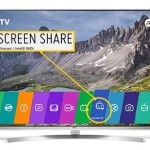Why Is My Screen Mirroring Not Working On Samsung TV?
Screen mirroring, the ability to wirelessly display the content of a smartphone, tablet, or computer on a television screen, has become a popular feature for sharing photos, videos, and presentations. However, users occasionally encounter issues when attempting to mirror their devices to their Samsung TVs. This article explores some of the most common reasons why screen mirroring might not be functioning correctly and offers potential solutions.
1. Network Compatibility Issues
One of the primary reasons for screen mirroring failures lies in network incompatibility. Both the source device (smartphone, tablet, or computer) and the Samsung TV must be connected to the same Wi-Fi network for screen mirroring to work. If the devices are connected to different networks, or if one device is using cellular data, screen mirroring will not be possible.
To resolve this, ensure both devices are connected to the same Wi-Fi network. Check the network settings on both the source device and the TV to confirm they are on the same SSID. If the TV is connected via Ethernet cable, ensure the source device is connected to the same network via Wi-Fi.
2. Device Compatibility Issues
Not all devices are inherently compatible with all screen mirroring technologies. Samsung TVs typically support Miracast and may also support other protocols like AirPlay 2 (depending on the model). If the source device doesn't support the same protocols as the TV, screen mirroring will fail. It is essential to verify the supported mirroring protocols of both the source device and the Samsung TV.
Consulting the user manuals for both devices is recommended to determine compatibility. If the devices are not compatible, alternative solutions might include using a third-party app designed for cross-platform screen mirroring or utilizing a physical connection like HDMI.
3. Outdated Software or Firmware
Outdated software on either the source device or the Samsung TV can lead to compatibility issues and prevent screen mirroring from working correctly. Manufacturers frequently release updates to improve performance, fix bugs, and enhance compatibility. Therefore, keeping both devices updated is crucial.
Check the software update settings on the source device (smartphone, tablet, or computer) and ensure it is running the latest version of its operating system. Similarly, navigate to the settings menu on the Samsung TV and check for any available firmware updates. Install any pending updates on both devices.
4. Incorrect TV Settings
Sometimes, the screen mirroring settings on the Samsung TV itself can be the source of the problem. The TV might have screen mirroring disabled, or the input source might not be correctly selected for screen mirroring.
Access the TV's settings menu and locate the screen mirroring or screen sharing option. Ensure that screen mirroring is enabled. Additionally, verify that the correct input source is selected on the TV. If necessary, switch the input source to the one designated for screen mirroring.
5. Network Interference
Interference from other devices on the Wi-Fi network can sometimes disrupt screen mirroring. Other devices heavily utilizing bandwidth, such as streaming devices or large file downloads, can cause instability and interrupt the connection between the source device and the TV.
Temporarily disconnect or disable other devices on the network to see if this resolves the issue. If network congestion is a frequent problem, consider upgrading to a router that can handle more bandwidth or using a dual-band router to separate devices onto different frequency bands (2.4 GHz and 5 GHz).
6. Physical Obstructions
While less common, physical obstructions between the source device and the Samsung TV can sometimes interfere with the wireless signal required for screen mirroring. Large metal objects, walls, or electronic devices placed between the two can weaken the signal and cause connection problems.
Try moving the source device closer to the TV to minimize potential interference. If possible, relocate any large objects that might be obstructing the signal path between the two devices.
7. Hardware Issues
In rare cases, a hardware malfunction in either the source device or the Samsung TV could be the root cause of the screen mirroring problem. If all other troubleshooting steps have been exhausted, a hardware issue might be a possibility.
Attempt to mirror from a different source device to the Samsung TV to isolate the problem. If mirroring works from a different device, the issue likely resides with the original source device. Conversely, if mirroring still fails from other devices, the problem might be with the TV's hardware. In such cases, contacting the respective device manufacturer for further assistance might be necessary.

Solved Why Is Screen Mirroring Not Working On My Samsung Tv

Solved Why Is Screen Mirroring Not Working On My Samsung Tv

15 Ways To Fix Screen Mirror Or Cast Not Working On Samsung Tv Techwiser

14 Fixes For Screen Mirroring Mac To Samsung Tv Not Working Techwiser

15 Ways To Fix Screen Mirror Or Cast Not Working On Samsung Tv Techwiser

Screen Mirroring Not Working Quick Solutions Here

How To Fix Airplay Not Working On Samsung Tv 17 Easy Fixes

15 Ways To Fix Screen Mirror Or Cast Not Working On Samsung Tv Techwiser

What Is Screen Mirroring And How Do I Use It With My Samsung Tv Mobile Device

Screen Mirroring To Your Samsung Tv








